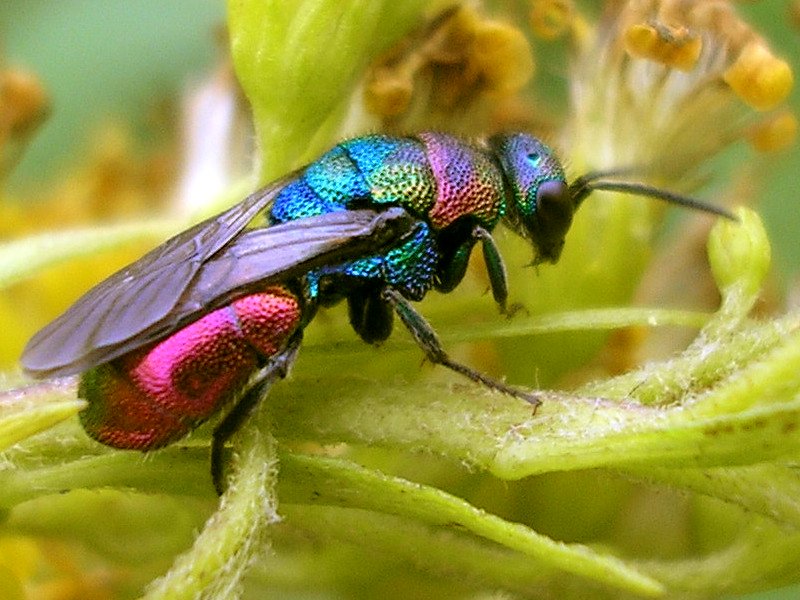It’s a question often raised around this time of year, as we take to our back gardens or the terraces with a nice jug of Pimm’s or a cocktail, only to be plagued by wasps: what is the point of wasps anyway?
Now a research project from the University of East Anglia and University College London has presented the answer: they’re almost as useful as bees, but get nothing like as much sympathy.
The study looked at over 500 research papers to figure out in what ways 33,000 different species of stinging wasps contribute to their ecosystem, and in particular how that contribution is beneficial to human society, health and economy.
"Wasps are one of those insects we love to hate – and yet bees, which also sting, are prized for pollinating our crops and making honey,” the study’s lead author, Professor Seirian Sumner of UCL Centre for Biodiversity & Environment Research, told Eurekalert.
“In a previous study, we found that the hatred of wasps is largely due to widespread ignorance about the role of wasps in ecosystems, and how they can be beneficial to humans.”
Part of the problem may be that wasps are in a confrontational relationship with humans, whereas bees have been cultivated since time immemorial. And to be blunt, a wasp can sting you as many times as they like, while a bee will only do so at a cost to their own life, which seems more noble.
“Wasps are understudied relative to other insects like bees, so we are only now starting to properly understand the value and importance of their ecosystem services. Here, we have reviewed the best evidence there is, and found that wasps could be just as valuable as other beloved insects like bees, if only we gave them more of a chance,” Prof. Sumner said.
Among the ways wasps contribute is in their role as an apex predator, preying on the likes of aphids and caterpillars that damage crops. Different types of wasp specialise in one prey, while others are more general in their tastes.
The study suggests that farmers could use predator wasps for pest control without risk to the local environment, and that wasps would be particularly effective in dealing with the pests that attack crops like maize and sugar cane.
Wasps are also excellent pollinators – a role commonly attributed to bees – with research showing they pollinate 960 species of plant, 164 of which depend on the wasp entirely.
In addition, wasp venom and saliva has antibiotic properties, while the yellowjacket wasp’s venom has shown promising results in the treatment of cancer.
“The value of wasps in supporting our crops remains poorly understood,” said study co-author Dr Alessandro Cini of UCL.
“We hope that by rehabilitating their bad reputation, we can collectively get the most value out of these fascinating creatures.”
Alan Hope
The Brussels Times

